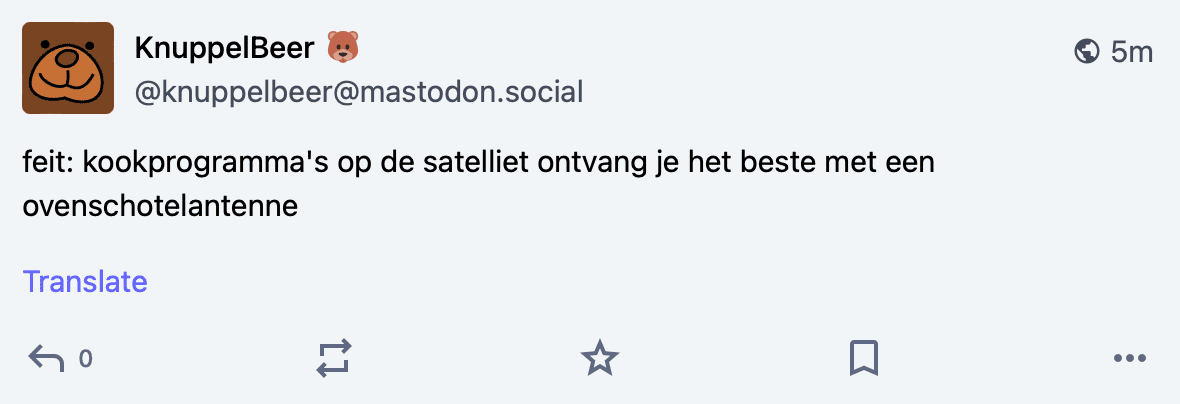Translation
In order for Mastodon to offer to translate a post into a different language:
- The author of the post must have marked the language
- The language of the post must be different than your language
- The translation engine must be able to process the given combination.
ex: If a user posts content in Dutch, but the post is marked as being in English and your user interface is set to English, the Mastodon interface will not offer to translate the post.

The our translation API is also available to other client applications you may download to your devices. These clients may also offer additional translation services which are outside of our control; for example, Ivory will use Apple's on-device translation API first, but then use the server's API if an unsupported language is detected.
Third party web clients like Elk and Phanpy use different translation engines (LibreTranslate and Lingva) and may return different results.
Threads
The micro-blogging app from Meta, is working towards implementing ActivityPub and join its user base to the rest of the Fediverse.
Trends
One of the key features of Mastodon is that there's no sophisticated algorithm to drive more traffic to the site or influence your thinking. All posts are displayed in a traditional chronological timeline with the newest posts or boosts made by people or hashtags you follow displayed at the top of the page.